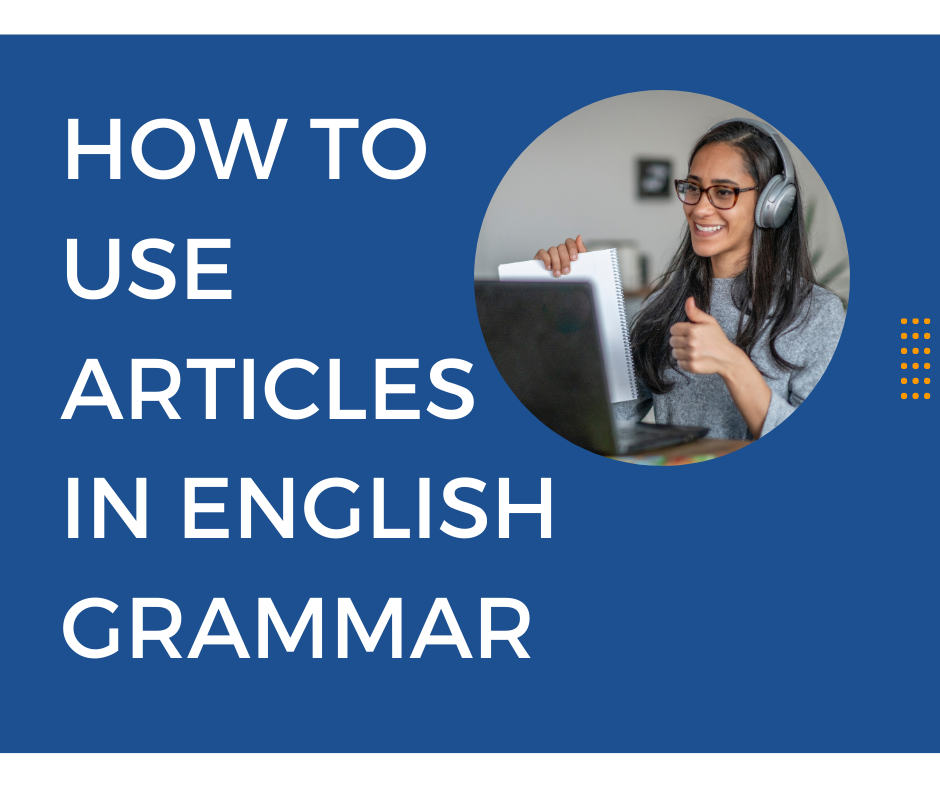
English articles are tiny words, but they play a significant role in shaping the meaning and clarity of a sentence. Articles are a fundamental component of English grammar, and they can be tricky to master for non-native speakers. In this article, we will explore the three primary articles in English: “a,” “an,” and “the,” and discuss their usage and nuances.
Definite Article: “The”
“The” is known as the definite article. It is used to specify a particular or unique item, person, or thing. When you use “the,” you are indicating that the listener or reader should be familiar with the noun you are referring to. Here are some key points to remember about “the”:
- Specificity: “The” is used when the noun is already known or when there is only one of that item. For example, “The Eiffel Tower is in Paris” refers to a specific and well-known landmark.
- Superlative: “The” is used with superlative adjectives, such as “the tallest,” “the smallest,” or “the most beautiful.”
- Uniqueness: “The” is also used with unique items or things that are one of a kind. For instance, “The sun rises in the east.”
- Before Definite Nouns: Use “the” before singular and plural nouns when you want to indicate a specific item or items. For example, “I saw the movie last night.”
Indefinite Articles: “A” and “An”
“A” and “an” are known as indefinite articles. They are used to refer to non-specific, generic, or one of many items. The choice between “a” and “an” depends on the initial sound of the following word. Here’s how to use these articles:
- “A”: Use “a” before words that begin with a consonant sound. For example, “I have a car” or “She’s wearing a dress.”
- “An”: Use “an” before words that begin with a vowel sound. For instance, “He’s an actor” or “She’s an honest person.”
- Non-Specificity: Both “a” and “an” are used to introduce a non-specific noun. They indicate that the item you are referring to is not unique, and there could be many similar items.
- Countable Nouns: “A” and “an” are used with countable nouns, which means you can count the items you are talking about.
Omission of Articles
In some cases, articles are not used. Here are a few instances when you should omit articles:
- Plural and Uncountable Nouns: Articles are not used with plural nouns or uncountable nouns when talking about general or non-specific ideas. For example, “Cats are cute” or “I like music.”
- Names: Names of people, places, and companies typically do not require articles. For example, “John is my friend,” “Paris is beautiful,” and “Apple makes smartphones.”
- Meals and Times: Articles are omitted when discussing meals or times of the day in a general sense, such as “She eats breakfast in the morning.”
- Occupations: In some cases, you can omit articles before occupations when referring to them in a general sense. For example, “She is a teacher,” but “She is teacher of the year.”
Understanding the use of articles in English grammar is essential for clear and effective communication. “The” points to something specific, while “a” and “an” introduce non-specific nouns. By mastering the usage of these articles, you can enhance the precision and clarity of your English writing and conversation. Practice and exposure to the language will help you become more proficient in using articles correctly.
Let’s have a look at a video explaining how to use the articles in English Grammar.
What will you learn in this video?





.
Remember, knowing the articles well can change your English from stuttering to fluent. So, make sure to watch the video, take notes, and practice as much as you can because “Practice makes perfect!”
But don’t stop here! EngVarta provides a unique platform for practicing your English language skills with live tutors. With EngVarta, you can practice your pronunciation, grammar, and conversation skills with expert tutors from around the world.
So, start practicing on EngVarta today and take your English skills to the next level. Download the app for one on one spoken English practice with live English experts: https://engv.in


